The American Psychoanalytic Association’s Responses to Current and Chronic Racial Injustice: On August 21, 2020, The Holmes Commission on Racial Equality (CO-REAP) in the American Psychoanalytic Association (APsaA) was established with the mission of investigating systemic racism and its underlying determinants embedded within APsaA, and to offer remedies for all aspects of identified racism. The scope of our inquiry includes APsaA’s national organizational governance structures, policies and practices, and the educational standards and practices within its member institutes. CO-REAP will develop a plan of action to achieve racial equality in all that APsaA is and does. APsaA will continue to respond to racial crises with its current means (for example, town halls and racial equality statements). At the same time, the Commission’s task is to identify apparent and implicit manifestations of structural racism that may reside within APsaA and its member institutes, in our interactions with the wider psychoanalytic world beyond APsaA and with the public in general.
The Commission’s Work: To achieve a thorough psychoanalytic understanding of how racism and its impacts play out within our national psychoanalytic organization and component institutes, the Commission will: frequently meet in think tanks, conduct surveys and interviews, engage in integrative smaller work groups, and produce a final report.
Commission Recommendations: CO-REAP will recommend an action plan to APsaA that identifies all changes that APsaA needs to make in its organizational structures, operations, and standards to ensure that racial equality is a hallmark of APsaA’s identity and the identity of its member institutes. The Commission will delineate its racial equality mission in policy and operational steps that will guide the establishment and maintenance of safe environments and opportunities for people of color to be able to achieve full advancement at all levels of engagement. Evidence of success, over time, will be manifest in people of color choosing, increasingly, to join APsaA – to: seek and have access to psychoanalytic treatment, gain employment in our national organization, train in our institutes, become successful practitioners of psychoanalysis and become faculty members in our institutes. The Commission will recommend that APsaA establish a permanent structure to monitor and measure how it and its member Institutes are meeting APsaA’s racial equality mission. The Commission also hopes that APsaA’s public facing activities will clearly demonstrate its commitment to racial equality, and will catalyze other psychoanalytical organizations and enterprises to join us in making a universal commitment to racial equality in psychoanalysis.
A Note on the Formation of the Commission: Recent and continuing racial atrocities in the United States awakened APsaA to its need to systematically and intentionally address our country’s racism. To do so, APsaA leadership (William Glover, PhD and Kerry Sulkowicz, MD, President and President-Elect, respectively) collaborated with Black Psychoanalysts Speak (represented by its Co-Chairs, Craig Polite, PhD and Kathy White, PhD). The consultation resulted in naming the Holmes Commission and in appointing its leadership team. Commissioners were chosen to represent seasoned and new voices on race, and a variety of geographic, ethnic, gender, leadership and other qualities to promote lively and productive engagement of our work. We recognize that other valuable voices are not represented on the Commission, and we look forward to benefiting from them in our ongoing work. Following is the Commission’s roster with biosketches and photos for each Commissioner.
Timeline for the Commission’s Work and Contact Information: It is anticipated that the work of the Commission will take approximately one and one-half years. CO-REAP will be seeking information widely, as indicated above, and we will welcome communication initiated by all interested parties.
To contact the Commission, we ask that you use the Commission’s email: [email protected]
Commission Members:
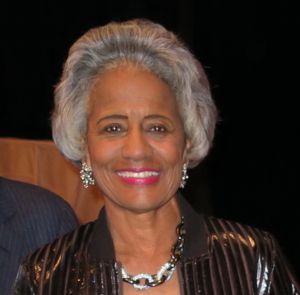
Chair Dorothy Evans Holmes, PhD is Training and Supervising Analyst at the Psychoanalytic Center of the Carolinas and IPTAR, Professor and PsyD Program Director Emerita, George Washington University, and member of Black Psychoanalysts Speak. Her psychoanalytic scholarship on race and gender has been highly acclaimed and recognized in numerous career honors including two APA Division 39 awards – a career achievement award for the study of diversity, and an award for psychoanalytic understanding of women. Currently, she is interrogating and theorizing “whiteness”. Recent publications include: (2019). Our country ‘tis of we and them: psychoanalytic perspectives on our fractured American identity. American Imago. 76:359-379, and (2020). Feminism revisited: A rejoinder to Arlene Kramer Richards’ examination of the impact of feminism on psychoanalysis. International Journal of Controversial Discussions. 3:91-96.
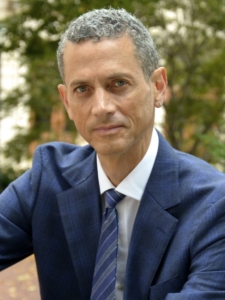
Anton Hart, PhD, Co-Chair is Training and Supervising Analyst and Faculty of the William Alanson White Institute. He supervises at several psychoanalytic institutes and at Adelphi University. He is a member of the Editorial Boards of Psychoanalytic Psychology and Contemporary Psychoanalysis. He is a Member of Black Psychoanalysts Speak. He teaches at Mt. Sinai Hospital, the Institute for Contemporary Psychotherapy, the Cleveland Psychoanalytic Center, the National Institute for the Psychotherapies, the New York Psychoanalytic Institute, and the Institute for Relational Psychoanalysis of Philadelphia. He serves as Chair of the Diversities Section of the APsaA’s Department of Psychoanalytic Education. He is in full-time private practice of psychoanalysis, individual, family and couple therapy, psychotherapy supervision and consultation, and organizational consultation, in New York City.
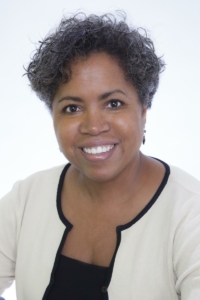
Dionne R. Powell, MD, Co-Chair is a Training and Supervising Psychoanalyst at Columbia University Center for Psychoanalytic Training and Research, and The Psychoanalytic Association of New York. She holds faculty appointments at the New York Presbyterian Hospital, Columbia University and the New York-Presbyterian Hospital, Weill Cornell Medical College in New York. Recent publications include: Race, African Americans and Psychoanalysis: Collective Silence in the Therapeutic Situation, Journal of the American Psychoanalytic Association, 2018; From the Sunken Place to the Shitty Place: The Film Get Out, Psychic Emancipation and Modern Race Relations from a Psychodynamic Clinical Perspective, The Psychoanalytic Quarterly, 2020. She is Vice President of the American Association for Psychoanalytic Education, and member of Black Psychoanalysts Speak. She is in full time private practice.
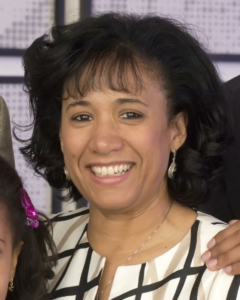
Beverly J. Stoute, MD, Co-Chair is a Child, Adolescent and Adult Psychiatrist and Psychoanalyst in private practice in Atlanta, GA. Her current appointments include: President, Atlanta Psychoanalytic Society, Training and Supervising Analyst, the Emory University Psychoanalytic Institute; Child and Adolescent Supervising Analyst of The New York Psychoanalytic Institute, Fellow (Training and Supervising Analyst) of the Institute for Psychoanalytic Training and Research (IPTAR); faculty member of the Southeast Child Analytic Consortium, the Emory University and Morehouse Schools of Medicine. She serves on multiple editorial boards and advisory committees, and is a member of Black Psychoanalysts Speak. She is a nationally recognized speaker, author, and consultant on issues of racial bias in mental health care, diversity, and psychoanalytic treatment of aggressive and impulsive children and adolescents.
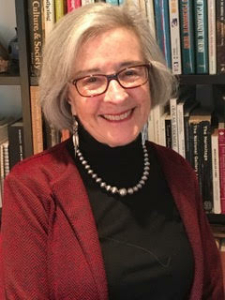
Nancy Chodorow, PhD is Lecturer, Psychiatry, Harvard Medical School/Cambridge Health Alliance; Training and Supervising Analyst, Boston Psychoanalytic Society and Institute; and Professor of Sociology Emerita, University of California, Berkeley, where she was a founding member of the Gender and Women’s Studies Department and Supervisor in Psychology. She graduated from the San Francisco Psychoanalytic Institute. Social science professor at a diverse, public university, faculty at a multiracial-ethnic teaching hospital, and clinician, Chodorow’s teaching, advocacy within psychoanalysis, and writing, especially The Power of Feelings: Personal Meaning in Psychoanalysis, Gender and Culture, and The Psychoanalytic Ear and the Sociological Eye: Toward an American Independent Tradition, attend to race, ethnicity, culture, and racism. She is honored this year in Nancy Chodorow and The Reproduction of Mothering: 40 Years On.
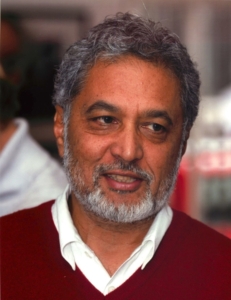
M. Fakhry Davids, MSc has a long-standing interest in the psychology of racism. Originally from South Africa, where he qualified and worked as a clinical psychologist, he moved to London for his psychoanalytic training. He is a Training Analyst of the British Psychoanalytical Society, where he is involved in introducing the topic of ethnicity and culture into the curriculum. Honorary appointments include University College London, Essex University, and the Tavistock Clinic. He is member of the IPA Liaison Committee for South Africa, member of the EPF Forum on Muslim Backgrounds, and a Board Member of Partners in Confronting Collective Atrocities (www.p-cca.org), a recipient of the 2019 Sigourney Award. He lectures and teaches widely, and authored Internal Racism: A Psychoanalytic Approach to Race and Difference (Palgrave Macmillan, 2011).
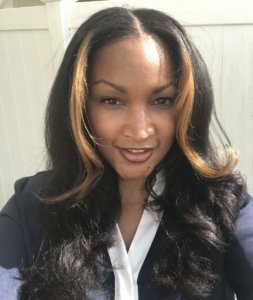
Ebony Dennis, PsyD a clinical psychologist, psychoanalyst and Adjunct Professor in the Howard University’s Department of Psychiatry and Behavioral Sciences. Dr. Dennis is a 2020 graduate of the Washington Baltimore Center for Psychoanalysis where she is working with colleagues to dismantle institutional and personal racism. She also consults at Ohio State University where she has created an anti-racism curriculum for student athletes. In addition to private practice, she enjoys a variety of teaching and supervisory related to cancer survivorship, sexual health, the challenges of being white, and gender and ethnic diversity. Her current publication is: Dunlap, C., Dennis, E., DeSouza, F., Isom, J., & Mathis, M., (2020, June). Management of race in psychotherapy and supervision. https://www.mdedge.com/psychiatry/article/224275/ptsd/management-race-psychotheapy-and-supervision.

William Glover, PhD is President of the American Psychoanalytic Association. He is a Training and Supervising Analyst on the faculty of the San Francisco Center for Psychoanalysis where he served as President and as Chair of the Psychoanalytic Education Division. Dr. Glover has been active in international psychoanalysis, serving on the Boards of the International Psychoanalytic Association and the North American Psychoanalytic Confederation. Dr Glover’s heritage is southern white Christian. He comes from a military family and is a Viet Nam veteran who became an active duty conscientious objector. Before his psychoanalytic training he worked in hospital and out-patient mental health settings in diverse, low income communities in the Bay area. Dr Glover is committed to diversity, equity, and inclusion in psychoanalysis and society.
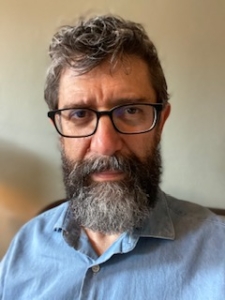
Francisco J. González, MD is Personal & Supervising Analyst, Community Psychoanalysis Supervising Analyst, Faculty, and Co-Chair of the Community Psychoanalysis Track at the Psychoanalytic Institute of Northern California (PINC). He has worked in community mental health since 1997, as psychiatrist and consultant at Instituto Familiar de la Raza, which serves low-income, Spanish-speaking Latinos in San Francisco. He serves on the editorial boards of Psychoanalytic Dialogues, Studies in Gender and Sexuality, and JAPA. His writing — which has been a recipient of the Symmonds Prize, Ralph Roughton Award, and co-recipient of the JAPA Award for Best Paper (2019) — focuses on the articulation of the social within individual and collective psychic life, including in the domains of gender, sexuality, racialized difference, immigration, film, and groups.
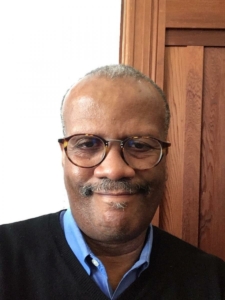
Forrest Hamer, PhD is a graduate and faculty member at the San Francisco Center for Psychoanalysis, the author of several essays on race and psychoanalysis and three collections of poems. Introduced to psychoanalysis as a radical means by which to counter social oppression, I join the commission with particular interests in helping to expand theory about the complexity of the shared unconscious, and to further thinking about race in the imaginaries within and across people.
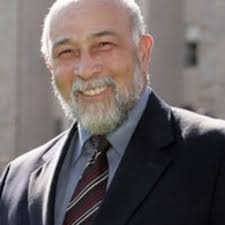
Rafael Art. Javier, PhD, ABPP is a Professor of Psychology and he Directs the Interagency Training and Research Initiatives and the Post-Graduate Professional Programs at St. John’s University. He holds additional faculty and supervisory positions at several other universities and postgraduate centers in New York. He has focused on issues of violence, including its impact on cognition and emotional functioning. Currently, he is studying issues of violence and moral development. He has published extensively on this and related subjects, including but limited to the acclaimed co-edited book, Reaching Across Boundaries of Culture and Class. He holds editorship appointments on several major journals. He is board certified in Clinical Psychology and Psychoanalysis, both by the American Board of Professional Psychology.
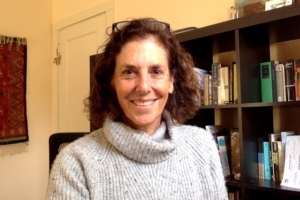
Maureen Katz, MD is a White, Jewish, cis-woman, Child and Adult Psychoanalyst based in the Bay Area. Her psychoanalytic inquiry has focused on issues of race, class and culture. She spent ten years leading a school-based collaborative for the Berkeley Public Schools, and in 1995 organized a joint conference of UC Berkeley and SFCP on psychoanalytic perspectives on the rise of Neo-fascism and Anti-immigration politics. She works on behalf of undocumented unaccompanied minors in detention in the US and on the border, with lawyers attempting to enforce the Flores statute and with Doctors 4 Camp Closure. She gratefully continues her involvement with issues of environmental racism, including groups affected in Flint Michigan and in coalitions with environmental justice communities in the Bay Area.
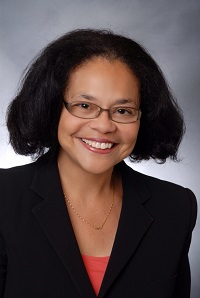
Kimberlyn Leary, PhD, Distinguished Advisor to CO-REAP is a senior vice president at the Urban Institute. She is also a lecturer in public policy at the Harvard Kennedy School, an associate professor of psychology at the Harvard Medical School/McLean and an associate professor of health policy and management at the Harvard T.H. Chan School of Public Health. As a Robert Wood Johnson Health Policy Fellow, she served as an adviser to President Obama’s White House Council on Women and Girls, helping to develop the Advancing Equity initiative focused on improving life outcomes for women and girls of color.

Rachel D. Maree, MD is a psychiatrist in private practice in Atlanta, Georgia, and an analytic candidate at Emory University Psychoanalytic Institute (EUPI). Dr. Maree received her medical degree from the Medical University of South Carolina in Charleston, South Carolina and completed adult psychiatry residency at the University of Pittsburgh in Pittsburgh, Pennsylvania. She is an active member of her local analytic community, serving as a member of both the EUPI Curriculum Committee and the Program Committee of the Atlanta Psychoanalytic Society. She also currently serves as Chair of the Paper Prize and Diversities Committees for the American Psychoanalytic Association (APsaA) Candidates’ Council. As a CO-REAP Commissioner, Rachel hopes to learn from other commissioners and contribute to development of more racial equality within APsaA.

Teresa Méndez, MSW, is Co-President of the American Association for Psychoanalysis in Clinical Social Work (AAPCSW), a past Fellow of APsaA and a Scholar of APA Div 39’s Multicultural Concerns Committee. She is an advanced candidate at the Washington Baltimore Center for Psychoanalysis where she serves on the Diversities Committee. A former journalist, she is an award-winning author of several papers on the mixed-race experience and the editor of a special issue on race and psychoanalysis in Psychoanalytic Social Work, for which she is a member of the editorial board. She is in private practice in Baltimore, MD.
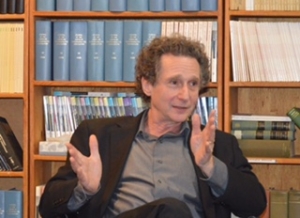
Michael Moskowitz, PhD is IPTAR’s Past-President as well as a training and supervising psychoanalyst. He is a founding member of Black Psychoanalysts Speak and on the faculty of the NYU Postdoctoral Program, and the NYU School of Social Work. He has written about psychoanalytic theory, organizational dynamics, race, ethnicity, and neuroscience. He is co-editor of Reaching Across Boundaries of Culture and Class: Widening the Scope of Psychotherapy (Aronson, 1996) , and author of Reading Minds: A Guide to the Cognitive Neuroscience Revolution (Karnac, 2010). Dr. Moskowitz was Team Leader of the first VA Vietnam Veterans center in the northeast, a recipient of the Gradiva award for his work in psychoanalytic publishing, and co-producer of Black Psychoanalysts Speak and associate producer of Psychoanalysis in El Barrio.
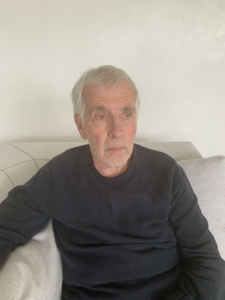
Donald Moss, MD has been working on clinical/theoretical/activist perspectives that aim to understand and dismantle structured forms of hatred– “hating in the first person plural”–racism, homophobia, misogyny and xenophobia since the mid-80s. Along with scientist/analyst colleagues in the Green Gang, he is now working to illuminate similarly structured forms of hatred that take the natural world as their object. He is currently the Chair of APsaA’s Program Committee, helping to turn the program from its traditional focus on things we’ve always known to a new focus on things we’ve always been afraid to know. Don is the author of four books and 60+ articles on similar type themes.

Kerry Sulkowicz, MD a psychiatrist and psychoanalyst, is President of the American Psychoanalytic Association. He is the founder and Managing Principal of the Boswell Group, a psychodynamic management consultancy based in New York, and serves as a trusted advisor to leaders, senior teams and boards. Kerry has published numerous articles on the psychology of business and has written about the neglect of leadership in psychoanalysis. Kerry is a Clinical Professor of Psychiatry at NYU School of Medicine, where he received the Distinguished Teacher Award, and received the Edith Sabshin Teaching Award from APsaA. He received an AB from Harvard College and MD from the University of Texas. Kerry is past board chair of Physicians for Human Rights, which shared in the Nobel Peace Prize.

Usha Tummala-Narra, PhD is Professor of Counseling, Developmental and Educational Psychology and Director of Doctoral Training in Counseling Psychology in Boston College. She also practices independently in Cambridge, MA. Her research and scholarship focus on immigration, cultural competence and psychoanalytic psychotherapy. She has served in major leadership roles in APA Division 39 and on APA Committees and Task Forces, on multicultural and ethnic minority issues and immigration. She holds editorial positions on three journals: Asian American Journal of Psychology, Psychoanalytic Dialogues, the Journal of Humanistic Psychology. She is a Fellow in APA (39 and 45). She authored Psychoanalytic Theory and Cultural Competence in Psychotherapy, 2016. A new edited book, Trauma and Racial Minority Immigrants: Turmoil, Uncertainty, and Resistance, will be published in 2021.
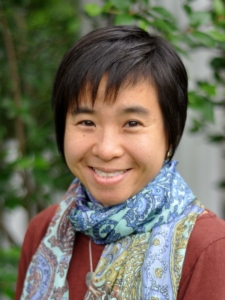
Jasmine Ueng-McHale, Ph.D. is a clinical psychologist. She is co-author with Calvin Chin, Ph.D. of a chapter, “Contextualizing Psychodynamic Psychotherapy with Asian Americans: Integration of Transnational and Intergenerational Histories and Asian American Racialization,” to be published in the 3rd edition of Glen Gabbard’s Psychotherapeutic Treatments (in development). Dr. Ueng-McHale’s presentations include: 2019 a paper at the conference of the Association of Asian American Studies on “Activism, Proximity, and Practicing Community Across Racial Divides.” She co-organized and presented at, “Asian in America: Representation, Activism, and Mental Health” a conference in December 2016, and “Authenticity and Solidarity: Answering Our Call to Civic Engagement and Community” in September 2018 both at Princeton University. Dr. Ueng-McHale will present at the APA Div. 39 Spring 2020 Conference on “Mentalizing Racial Relations and Asian American Experiences of Race.” Dr. Ueng-McHale is in full time practice in Pennington and Princeton, NJ.
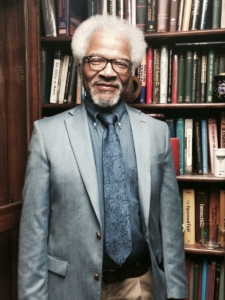
Kirkland Vaughans, PhD is a Fellow (Training and Supervising Analyst), Institute for Psychoanalytic Training and Research (IPTAR), Adjunct Clinical Professor at NYU Postdoctoral Program in Psychotherapy and Psychoanalysis, and Clinical Director of the Derner/Hempstead Child Clinic. His service on numerous faculties and boards includes the International Psychotherapy Institute and Board Chairman, Harlem Family Institute. Currently, he is a member of Black Psychoanalysts Speak. Dr. Vaughans, founding editor of the Journal of Infant, Child, and Adolescent Psychotherapy, co-edited the seminal book, The Psychology of Black Boys and Adolescents. Nationally, he is recognized for scholarly work on the psychological issues of Black boys, the school to prison pipeline, and intergenerational transmission of trauma among African Americans. He maintains a private practice in New York City.
























